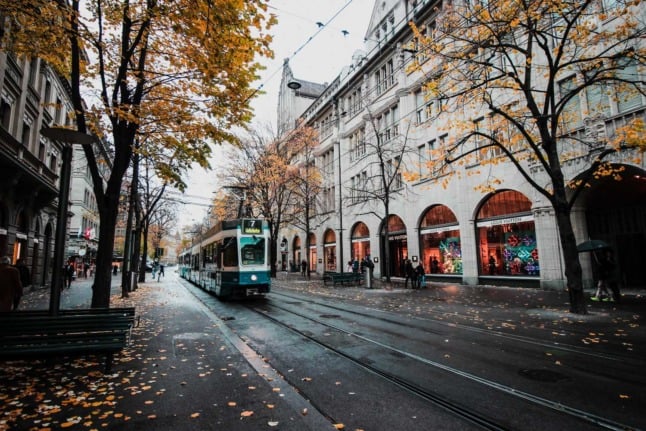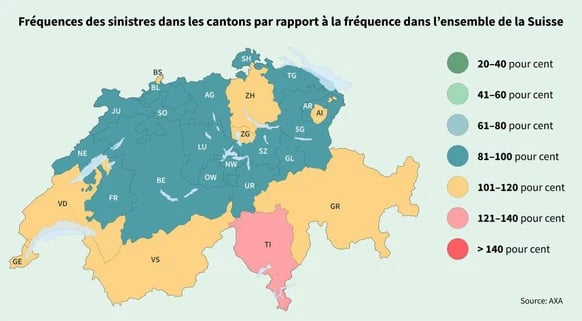For a country which is small on geographical size, Switzerland is incredibly diverse.
From cultural norms to political attitudes – and of course linguistic variance – things change significantly from canton to canton.
And according to a new study by AXA Switzerland, an insurance firm, that is certainly the case when it comes to road safety.
And the worst drivers come from….
Rather than the ‘worst drivers’, it is probably more accurate to speak of the ‘drivers with the worst safety records’, given that the study looks primarily at accident numbers.
Drivers in the Italian-speaking canton of Ticino suffered the highest number of car accidents between 2016 and 2020. That is more than 20 percent over the Swiss average.
From 2016 to 2020, AXA received 16,900 claims in the canton of Ticino.
This is in comparison to 870 claims in Uri over the same period, which is the canton with the best record when it comes to road accidents.
After the canton of Uri, Schaffhausen’s and Luzern’s drivers were also relatively safe.
Collision damage claims in those regions were significantly lower than the Swiss average.
For anyone wanting to get an idea of how Switzerland as a whole fared, Aargau is the canton which is closest to the Swiss average.
The larger cities of Geneva and Zurich both fared poorer than the Swiss average.

Generally speaking, the German-speaking regions of Switzerland ranked the best, while the French-speaking regions ranked poorly.
Ticino, as the only Italian-speaking canton, ranked the worst.
Why Ticino?
While many social media users were quick to point to the linguistic and cultural connections between Ticino and Italy as a reason for the results, the authors of the study feel that the underlying reasons are more than just cultural.
AXA expert Freddy Egg said the narrow, sloping streets of Ticino posed particular challenges for drivers and were therefore an underlying reason why accident rates were above the national average.
Sasha Küng, a driving instructor in Ticino, told 20 Minutes that the poor quality of the roads was another reason, but that cultural connections between Italy and Ticino should not be discounted.
“In Ticino we also have a lot more two-wheelers that overtake on the left and right,” Küng said.
Sepp Gisler, President of the Uri Driving Instructors Association, said geographical factors were also key to Uri’s good result, as were strong training regimes.
“I don’t know why we have so few accidents. We certainly have less complex situations in Uri than in Geneva or Zurich,” he said,
“We driving instructors and the Road Traffic Office simply attach great importance to solid basic training before we go to the test. So you are at a good level to be able to avoid accidents”.
Where are the best and worst drivers in Switzerland?
The following map shows the cantons with the best and worst road safety records.
The safety records are expressed as a comparative percentage in the canton with that of the nation as a whole.
Therefore, a higher score than 100 means a worse driving record than Switzerland.

Map: AXA Switzerland




 Please whitelist us to continue reading.
Please whitelist us to continue reading.
Member comments